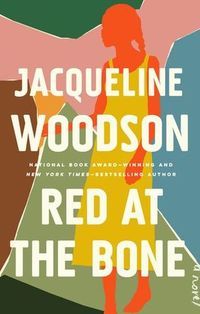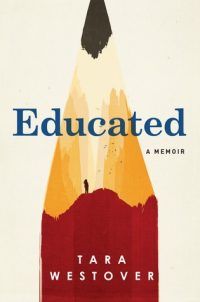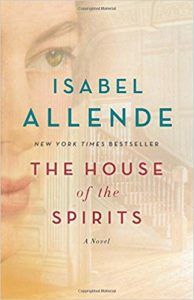We readers also fantasize about being free of familial obligations and setting off into the great unknown to vanquish a dark lord or evil queen. But is it possible for protagonists to be successful with the obligations of family on their shoulders? Imagine Molly Weasley plotting with Harry in the Gryffindor common room—now that would would be epic. I want to make the case for family because it plays a significant role in shaping a character’s sense of identity. They define a character by what they have rather than what they lack, so in honor of familial ties—the good and the ugly—here are five books that place family in the spotlight.
Red at the Bone by Jacqueline Woodson
I don’t know how Woodson did it, but she made a 200-page family tale feel like a 500-page epic. Each word packs a punch. We begin at the coming of age ceremony for teenage Melody—whose relationships with her family range from happy to tense—and take a trip down memory lane to discover how Melody and her family arrived at the ceremony. Woodson does a stunning job of illustrating the backstory of each family member—Melody’s mother, father, grandmother, and grandfather—and how their experiences have shaped the family’s destiny.
Educated: A Memoir by Tara Westover
Westover’s novel is tough to read. It’s a tale of a young girl coming to grips with her unconventional upbringing. Born into a conservative Mormon family, Westover never learned about the Holocaust or Civil Rights movement. Instead of attending school, Westover helped her family prepare for Y2K. However, she was inspired to pursue a college education and ultimately finds herself in the halls of Cambridge. We realize that while family shapes our perception of the world, we still have the power to educate ourselves.
Frankly in Love by David Yoon
Yoon’s novel about a Korean American teen navigating love, family, and culture is a breath of fresh air. Yoon openly discusses how difficult it can be for a child of immigrants to juggle the Western culture experienced at school and the culture of the old country (South Korea in this case) at home. Family is critical to Frank, our endearing protagonist, as his parents drive every decision he makes, which include hiding the fact that he’s dating a white classmate.
The House of the Spirits by Isabel Allende
The House of the Spirits is a multigenerational saga of a wealthy family living in an unnamed South American country (presumably Chile since that’s where Allende hails from). At the heart of the story is the Trueba clan, and how Esteban Trueba, the family’s mercurial patriarch, navigates his desires and ambitions. But the story isn’t just about Esteban. Allende digs into the experiences of the Trueba women: Clara, Esteban’s clairvoyant wife; Blanca, Esteban’s spirited daughter; and Alba, his beloved granddaughter. Esteban’s perspective is offset by Alba’s, whose intelligence and empathy show how the burden of family can haunt us and drive the future.
Miller’s Valley by Anna Quindlen
Mimi Miller is a proud Miller of Miller’s Valley. But the beautiful valley where her family has lived for generations will soon be subjected to an irreversible change. Quindlen takes us through Miller’s Valley and the kitchen of Mimi’s home, where her mother holds court and where she discovers family secrets from hushed conversations. Relationships drive this story: Mimi and her mother; Mimi and her friends; and Mimi and her valley. Family is both frustrating and moving. It can lift a character up and drag them down. Either way, I think we can all agree that family drama and intrigue make for marvelous stories.





